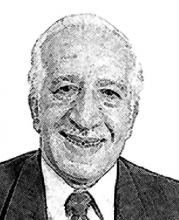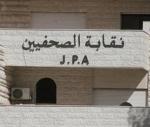You are here
To allay tensions in the city of peace
Nov 08,2014 - Last updated at Nov 08,2014
Jerusalem can still elicit sagaciousness and political perception.
The Sephardic chief rabbi of Israel, Yitzhak Yousef, called on his followers last week to avoid visiting Al Aqsa Mosque to perform prayers, since such actions had led to spilling Jewish blood.
That edict should be followed by a statement from an Ashkenazi rabbi in order to mollify the simmering tension in a city that was once called the city of peace.
The chief rabbi made his statements clearer when he criticised, “religious Zionist clerics who have been encouraging Jews to agitate for rights of worship in the holy complex”.
Yousef called those “fourth-rate rabbis”.
Such religious edicts should stop the violence that engulfed Jerusalem and threatened to ignite a third Intifada, that would be more destructive than the two previous ones, since Iran and Hizbollah have become active players in the Palestinian arena.
What happened in Jerusalem last week gives new indications. The two Palestinians who used their cars to run over Israelis were holders of Israeli passports. They were from Jerusalem.
Many of these Palestinians shunned the concept of suicide operations, preferring the luxury of cosmopolitan life, but when they realised that a plan is being executed to Judaise the holy mosque itself, they felt that a red line had been reached.
That emerging phenomenon among Jerusalemites is a strong signal that participation in the Palestinian struggle now includes all layers of society.
The second voice of sagaciousness came from Israeli Prime Minister Benjamin Netanyahu who talked to His Majesty King Abdullah, assuring him that he will not surrender to the demands of ultra-orthodox activists who plan to build the third Jewish temple in the yards between the Dome of the Rock and Al Aqsa Mosque.
Netanyahu phoned the King after the threat that a new United Nations Security Council resolution would be issued condemning Israel, as Jordan’s permanent representative to the United Nations had already tabled a complaint against attacks on Muslims in the mosque.
One new resolution of condemnation would not add much to the tens of other United Nations’ General Assembly and Security Council resolutions against the Israeli occupation, provocations, aggressions and civilian murders since 1967.
Still, the phone call signified Netanyahu’s tacit recognition of Jordan’s role as a regional player in the Palestinian-Israeli conflict.
The custodianship of the holy places, Christian and Muslim, is within the territorial imperative of the Hashemite family, the King personally, not only because the 1994 Peace Treaty specifies that, but due, as well, to the consensus of the Muslims.












